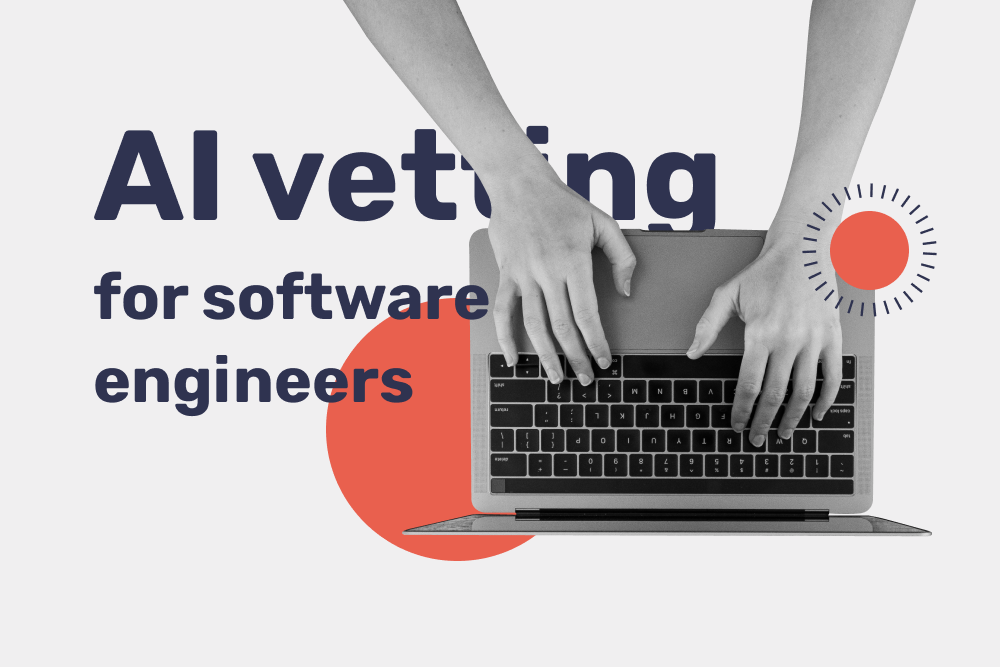Over the years of its existence, Ukraine has been called many things. The breadbasket of the Soviet Union, the breadbasket of Europe, sometimes even referred to collectively with other Soviet-bloc countries as “Russia,” the homeland of Milla Jovovich and Mila Kunis, among other names.
But did you know that famous tech entrepreneurs and software engineers like Jan Koum (inventor of Whatsapp), Max Levchin (part of the PayPal mafia), and SaaS you use (or are currently using) like Grammarly, Preply, and Gitlab have Ukrainian roots?
Let’s look at some examples of tech entrepreneurs and software engineers who have catapulted Ukraine into worldwide tech notoriety and the companies they’ve created.
Famous Ukrainian Entrepreneurs and Software Engineers
We couldn’t include every tech entrepreneur in our list, so we focused on the big three Ukrainian-Americans — Jan Koum, Max Levchin, and Vitaly Golomb. Apart from those guys, we’ll give you a short bio on Oleg Rogynskyy (People.ai), Kiril Bigau (Preply), and Dmitriy Zaporozhets (GitLab).
Jan Koum

Although Whatsapp doesn’t need an introduction, its creator Jan Koum may be unfamiliar to you. If you happen to read this — Jan, sorry for this section’s heading. We know you don’t like the word entrepreneur. And we know why. Jan mentioned in an interview once that the word entrepreneur is “for people who create businesses to make money.” He wanted to create a great product and not create a company around it.
Regardless of his initial intentions or business philosophy, Jan created the world’s biggest mobile messaging service to date and sold Whatsapp to Facebook in 2014 for $22 billion in cash and stock.
Max Levchin
Max was only 16 years old when he and his family moved to the US. One year after graduating with a degree in Computer Science in 1997, Max co-founded the company that would become PayPal, where he served as CTO. The core group that worked at PayPal, known as the PayPal Mafia, launched world-renowned companies like YouTube, LinkedIn, Tesla, SpaceX, Yelp, and many more.
Max’s experience has spanned over 20 years, and in that time, he has worked as the Chairman of Yelp, founded Slide (sold to Google), and served on the Board of Directors at Yahoo!. Today, Max’s main focus is his FinTech company, Affirm, and a HealthTech endeavor called Glow.
Vitaly M. Golomb
Vitaly was just a kid when his family left Ukraine. They happened to land in San Francisco. Over the course of this career, Vitaly has been involved in all aspects of business — from venture-backed CEO to becoming a VC himself, advising companies, as well as mentoring and lecturing the younger generations of bright-eyed entrepreneurs and tech-savvy folks.
One thing that stands out with Vitaly is the affinity for his homeland. Vitaly advises Ukraine’s Ministry of Finance, and since 2016, has served as a Supervisory Board Member of the Ukraine Venture Capital and Private Equity Association. He has also spoken out strongly about brain drain in Eastern Europe.
Speaking about Central and Eastern Europe, Vitaly said, “All the best startups don’t really have a choice, they might leave some engineering there, but they have to move to Silicon Valley, London, or other capital-rich ecosystems at some point. This happens throughout Central and Eastern Europe because the infrastructure is not there.”
As we’ll see when we cover Ukrainian-born companies and startups, this is absolutely true.
Oleg Rogynskyy
Oleg is the CEO and Founder of People.ai. He was born in Dnipro, Ukraine, and got the opportunity to study abroad in Boston, MA, where he attended Boston University. Due to not being able to stay in the US (he couldn’t get a visa), he moved to Canada, which turned out to be a blessing in disguise. In Montreal, he got his first job at a machine learning company. He would go on to start three big data companies. The last and most successful one, People.ai, leverages data science, machine learning, and text analytics to measure and optimize productivity through sales automation tools.
Kirill Bigai
Kirill Bigai has a background in Telecommunications and Business Management. He and a small team of founders created Preply in 2012. Preply is a global language-learning platform that helps students and tutors find each other online. The platform currently has 40k+ tutors teaching 50+ languages and 100k+ students. From humble beginnings, Preply is scaling and finding success across Europe and North America. Kirill’s company has offices in Kyiv, Barcelona, and Berlin.
Dmitriy Zaporozhets
Dmitriy co-founded GitLab, the open DevOps platform used by millions of developers and teams around the world. He has stated in multiple interviews that if it weren’t for the business mindset of GitLab’s second co-founder, Sytse “Sid” Sijbrandij, the company would have never taken off as it did. Dmitriy codes in Ruby on Rails and PHP mostly and lives in Kharkiv. An interesting note about GitLab is that their team is spread across multiple continents and works remotely.
You can skip ahead to the list of examples we’ve prepared, but we’d like to give you a little more info on what Ukraine’s tech scene looks like at the moment.
Ukraine’s Tech and Business Scene
In 2020, a lot changed in Ukraine. It started with the Ukrainian Startup Fund (USF). The fund was created to help early-stage Ukrainian tech startups flex their muscles in the global market. The USF has granted over $3.5M to 100+ startups and organizes pitch days where founders can present their ideas.
The Ministry of Digital Transformation of Ukraine (yes, that’s what it’s called) announced the release of the Ukraine 360 tech ecosystem — an online platform for business information about IT companies, people, investors, and the whole Ukrainian tech ecosystem. It’s very similar to Dealroom (albeit still in beta version) and currently includes 1194 product and 836 service companies.
Ukraine votes YES on Diia City – The World’s First Virtual City
AIN.ua reported that for the first half of 2020, these were the biggest investment in Ukrainian startups (including startups with Ukrainian founders).
- Revolut — $500 million
- Preply — $10 million
- Allset — $8.25 million
- DMarket — $6,5 million
- Zakaz.ua — €5 million
- ClassTag — $5 million
- Rentberry — $4.5 million
- 3DLOOK — $1 million
- Astromix — $300,000
- Mriyar — $300,000
- Elision — $150,000
- Propertymate — $120,000
- Go To-U — $100,000
Now to the moment you’ve been waiting for, examples of companies started in Ukraine. We included companies founded (or co-founded) by Ukrainians and chose the companies that we felt were the most prominent and promising.
Examples of Companies Started in Ukraine
Here are just a handful of companies and startups with Ukrainian roots. For more, check out Dealroom or Ukraine 360 tech ecosystem.
Grammarly
Grammarly is a digital writing assistant that makes your communication clear and effective wherever you type.
- Launch date: Feb 2009
- Firm valuation: €1.2b (Dealroom.co estimates Oct 2019.)
Preply
Preply is an online tutoring platform that uses artificial intelligence to pair tutors and students.
- Launch date: Apr 2012
- Firm valuation: €118—177m (Dealroom.co estimates Mar 2021.)
Gitlab
GitLab is an open platform used for DevOps, project planning, and source code management.
- Launch date: 2014
- Firm valuation: €5.5b (Dealroom.co estimates Jan 2021.)
Very Good Security
Very Good Security is a fintech & data security enablement platform.+
- Launch date: 2014
- Firm valuation: Unknown (latest funding: $60M Series C)
Dmarket
DMarket is an in-game items monetization technology and platform based on blockchain.
- Launch date: 2017
- Firm valuation: €24—35m (Dealroom.co estimates Jun 2020.)
Mobalytics
Mobalytics is the first personal performance analytics for competitive gamers and esports.
- Launch date: 2016
- Firm valuation: Unknown (latest funding: $11M Series A)
Reface
AI technology to swap faces on images, GIFs, and videos. Famously used by Elon Musk and other celebrities.
- Launch date: 2019
- Firm valuation: €20—30m (Dealroom.co estimates Dec 2020.)
Propertymate
Propertymate is an AI-powered tool for real estate agents that matches buyers with all listed properties on the market and helps them to sell more homes.
- Launch date: 2018
- Firm valuation: €4—5m (Dealroom.co estimates Jan 2021.)
4 Reasons to Hire Your Next Remote Development Team in Ukraine
Hirio
A smart toolbox that enables the digital processes and automation of the applicant funnel for mass recruitment teams.
- Launch date: 2019
- Firm valuation: €2—2m (Dealroom.co estimates Feb 2021.)
ChoiZy
The first online platform in Ukraine that allows people to get career guidance with AI and learn and share their experiences.
- Launch date: 2019
- Firm valuation: Unknown (pre-seed)
Kivi
An international company, developer, and manufacturer of smart TVs and TV services
- Launch date: 2016
- Firm valuation: €47—71m (Dealroom.co estimates Feb 2021.)
DepositPhotos
Depositphotos is a creative content marketplace that allows users to buy and sell high-quality stock photos, vector images, and videos.
- Launch date: Nov 2009
- Firm valuation: €18—27m (Dealroom.co estimates Dec 2015.)
Restream
Restream allows you to broadcast live video to 30+ social networks at the same time.
- Launch date: Dec 2014
- Firm valuation: €182—273m (Dealroom.co estimates Aug 2020.)
Ajax Systems
Ajax Systems manufactures smart security systems and sensors for homes.
- Launch date: 2011
- Firm valuation: €36—55m (Dealroom.co estimates Mar 2019.)
airSlate
airSlate is a global SaaS technology co. that provides no-code business process automation, e-signature, and document management solutions.
- Launch date: 2006
- Firm valuation: €145—218m (Dealroom.co estimates Jan 2021.)
Augmented Pixels
Proprietary simultaneous localization and 3D mapping technologies for mobile devices, robots and drones, and home robotics.
- Launch date: 2006
- Firm valuation: Unknown (latest funding: 2M Seed)
Allset
Marketplace for restaurants and local diners, including online ordering and contactless solutions.
- Launch date: 2015
- Firm valuation: €30—45m (Dealroom.co estimates Apr 2020.)
Rentberry
Full-cycle digital renting experience, including credit reports, scheduling, custom offers, and more.
- Launch date: Aug 2015
- Firm valuation: €9—14m (Dealroom.co estimates Jun 2020.)
People.ai
Delivers the industry’s leading ROI (Revenue Operations and Intelligence) platform
- Launch date: 2016
- Firm valuation: €455m (Dealroom.co estimates Feb 2021.)
YayPay
YayPay develops accounts receivable software that automates payment workflows.
- Launch date: 2015
- Firm valuation: €31—46m (Dealroom.co estimates Dec 2018.)
YouScan
YouScan is an AI-powered social media listening and image recognition platform for brands.
- Launch date: 2009
- Firm valuation: €727k—1m (Dealroom.co estimates Jan 2011.)
And the list goes on. As you can see, industries where startups are gaining traction, include blockchain, fintech, edtech, martech, HRtech, and AI.
Takeaways — Examples of Companies Started in Ukraine
Thanks to initiatives like the Ukrainian Startup Fund, government incentives, and great software engineers, Ukraine is advancing in the tech world. But there are still some inherent problems that need to be solved.
Vitaly Golomb summed it up best when he spoke about brain drain in Ukraine, comparing the strong outsourcing market to a slave trade. In other words, the end products are not intended for the domestic market (including revenue, taxes, and exits).
US Tech Companies That Have R&D Offices in Ukraine (Google, Snap, Lyft and more!)
He went on to say, “Politicians don’t understand this nuance, they do not understand that this resource exists in the country. They need to focus on the future of the country and figure out where they need to invest now to have the opportunity to create great economic wins 5-10 years down the road.”
Couldn’t agree more, Vitaly. Ukraine has enormous potential.



